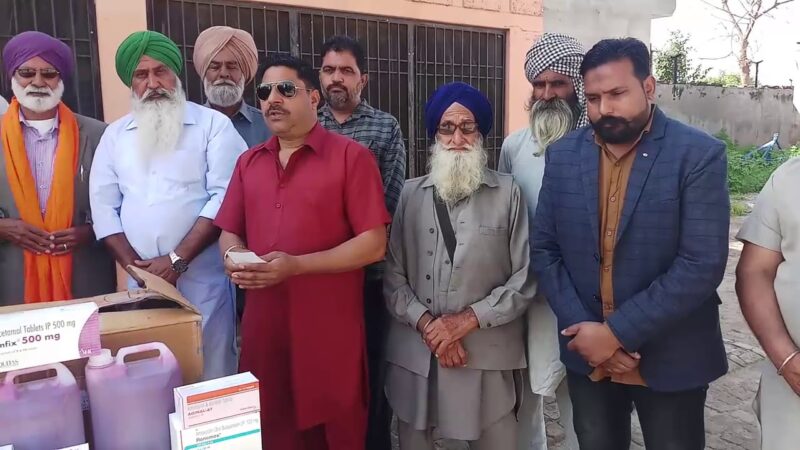 The flood relief materials currently being distributed across Punjab are not free goods for anyone to collect. These supplies – food packets, water bottles, blankets, medicines, and clothing – have been specifically donated and allocated for families who have lost everything to the floods. These are people whose homes are submerged, whose belongings have been washed away, and who are currently living in relief camps or temporary shelters with nothing but the clothes on their backs. When you take these materials without being a genuine flood victim, you are directly depriving desperate families of their lifeline.
The flood relief materials currently being distributed across Punjab are not free goods for anyone to collect. These supplies – food packets, water bottles, blankets, medicines, and clothing – have been specifically donated and allocated for families who have lost everything to the floods. These are people whose homes are submerged, whose belongings have been washed away, and who are currently living in relief camps or temporary shelters with nothing but the clothes on their backs. When you take these materials without being a genuine flood victim, you are directly depriving desperate families of their lifeline.
Every item you take from relief distributions has been carefully calculated based on the number of registered flood victims in the area. Relief organisations work with limited resources, and their supplies are meant to last for a specific number of affected families. When non-victims grab these materials, it creates an immediate shortage that forces actual flood victims to go without basic necessities. That packet of food you took could have been the only meal for a family that hasn’t eaten in days. The blanket you collected might have kept a child warm who is now sleeping on a cold, damp floor in a relief camp.
If you have a home to return to at the end of the day, if you have access to clean drinking water from your tap, if you have food stored in your kitchen, then you are infinitely better off than the flood victims these supplies are meant for. Taking relief materials when you already have access to necessities is not just morally wrong – it is exploiting the suffering of others for personal gain. These supplies represent hope and survival for people who have genuinely lost everything, and your actions are stealing that hope away from those who need it most.
Instead of taking relief materials you don’t need, consider how you can genuinely help flood victims in your community. Volunteer your time to help distribute aid properly, donate your own supplies to relief efforts, or contribute money to established relief organisations. Help identify and support families who are truly in need but may not have registered for relief yet. Your community needs people who uplift those in crisis, not those who take advantage of disaster relief systems. Be someone who ensures relief reaches its rightful recipients – the flood victims who are depending on this assistance for their very survival.